|
|
|
Biographies |
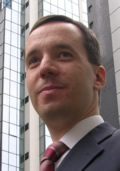 Fernando Botelho Fernando Botelho
Botelho & Paula Consultoria
Fernando Botelho is an international consultant who manages projects in the areas of trade development, poverty reduction, technology, and disability. He specializes in tools and strategies that are inherently low cost and scalable; in his own words "The only solutions that matter, given the enormous challenges humanity faces, are those that can be scaled.” Fernando is currently working with Literacy Bridge and a ‘Live USB’ project he is calling F123org.
Fernando's experience includes managing the Visionaris Award, a partnership between Ashoka and UBS AG, in Argentina, Brazil, and Mexico. Before coming to UBS Philanthropy Services in Zurich, Fernando worked for the International Trade Centre UNCTAD/WTO, an agency of the United Nations in Geneva. At ITC, Fernando led the development of the first methodology for the integration of professionals with disabilities in the services export sector. Before joining ITC, Fernando was Director of Technology at a New York NGO where he led the development of eSight.org, a groundbreaking online community for the professional advancement of people with disabilities.
Fernando has published and has been interviewed on trade, open source software, public policy, and disability topics. He has degrees from Georgetown University and Cornell University.
|
 Gerard Ellis Gerard Ellis
Feel The BenefIT
I am a consultant in the area of Accessibility and Usability under the name of Feel The BenefIT.
I have worked for over 25 years as a Software Engineer with a bank in Dublin.
I am a Fellow of the Irish Computer Society, which is the primary Irish organisation “serving ICT professionals and specialists in Ireland”.
I have been involved both nationally and internationally in organisations concerned with the social inclusion of people with disabilities for over 20 years.
I am the former Chairperson of the Irish Council of People with Disabilities, which is the largest organisation in Ireland representing people with disabilities, their parents and carers. ICPD has now been renamed to People with Disabilities in Ireland (PWDI). I was a National Board member of PWDI for over 5 years up to October 2006.
I have been active on the National Boards and subcommittees of various mainstream organisations in Ireland which relate to ICT issues. This includes the Information Society Commission which was set up by Government to advance Ireland’s readiness to take advantage of the Information Age.
I hold a Degree in Economics from University College Dublin.
I am a former member of, and a current special adviser to, the Universal Access Committee of the European Disability Forum. EDF promotes the interests of over 50 million people with disabilities in Europe.
I have spoken at conferences in 19 countries on 4 continents on various disability-related issues. I spoke at both phases of the First World Summit on the Information Society in Geneva and Tunis.
I am part of the group working to produce a CEN Agreement on a curriculum for training ICT Professionals in Universal Design. CEN is one of the 3 official European Standardisation organisations.
|
 Dipendra Manocha Dipendra Manocha
Daisy Consortium
Mr. Dipendra Manocha is working with the DAISY Consortium which is working in the area of providing publications in accessible formats to persons who cannot read normal print. He is the lead of training and technical support and coordinates DAISY Consortium’s projects in developing countries.
He is member of the Executive Committee of the World Blind Union and is managing trustee of the Saksham Trust. He is the elected president of the DAISY Forum of India which is a network of more than 74 organisations in India serving the persons with blindness and low vision. . He also worked as consultant to the Delhi University for establishing the resource centre for persons with disability.
After completion of post graduation and research degree from Delhi University in 1992, he has been working for the mission of providing information and content in accessible format to persons with print disability. He worked as Director IT & Services at the National Association for the Blind, New Delhi, India from 1993 till July 2008. During this time he has managed or coordinated several technological development or implementation projects such as:
- Establishment of IT training facility for persons with blindness.
- Development of Hindi Language Braille transcription software
- Establishment of DAISY Resource Centre in India under the Daisy for All Project to introduce DAISY Standards in South Asian countries.
- Setting up of DAISY Focal Points in 4 South Asian Countries
- Establishment of Digital library for print disabled.
- Content Creation Project for University books in Braille, E-Text and Talking Books format being supported by Ministry of Information and communication Technology, Government of India.
- Development of Screen Reading Software for Indian Languages.
- Establishment of equipment distribution centre for persons with blindness
- Audio Description of films
- Providing IT based work place solutions for persons with blindness or low vision.
During this period he has held the following posts:
- Chairman Youth Committee of the Asian Blind Union
- Chairman ICT Access Forum of India
- Member of the core group on Accessibility under the office of Chief commissioner for persons with disability, government of India
Recognitions:
- He is selected as Ashoka Fellow and recognised as a social entrepreneur
- National Award by government of India for contributions for community development in the area of disability in 2005
- IIM Lucknow Lakshmipat Singhania National Leadership award 2008 given by the president of India 2007.
|
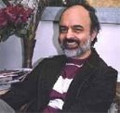 Prof. Arun Mehta Prof. Arun Mehta
President, Bidirectional Access Promotion Society (BAPSI), India
I obtained a B. Tech degree from IIT Delhi in 1975,
a Masters in Computer Sciences from the State
University of Stony Brook in two semesters
thereafter with the equivalent of a 4.0 GPA. I then
worked with Siemens AG in Erlangen, Germany for
three years, designing the electricals, electronics
and process control software for steel rolling
mills. In 1979, I returned to Mumbai, India, where I
designed and marketed hard wired and programmable
solutions for a large variety of industrial control
problems. In 1982 I joined the PhD program of the
Ruhr University, Bochum, Germany, as a fellow of the
Friedrich Ebert Foundation. My solution for a
time-optimal crane controller demonstrated a 5%
improvement in the throughput of a 35-ton grab crane
at Hamburg-Wedel, and was also presented at the
World Congress of the International Federation of
Automatic Control in Munich, 1987. I was awarded the
"Dr.-Ing" title the same year.
On returning to India, I became the Managing
Director of Indata Com Private Limited, in which
capacity I write software, teach, and provide
consultancy services. My clients include Tata Iron
and Steel Ltd, Jamshedpur, and the University of
Pittsburgh, for whom I developed software that helps
in the early detection of Alzheimers' disease. I
have written extensively for publications in India,
Pakistan, the US and Germany. In 2000, I started
radiophony.com together with Vickram Crishna, a .com
dedicated to audio-centric solutions to the problems
of the under-privileged. At the request of Professor
Stephen Hawking, I wrote eLocutor, free and open
source software that allows persons as severely
disabled as him to write and speak. I have taught
programming as a volunteer at the National
Association for the Blind, helping my students
become members of international development teams of
cutting edge software that will help improve the
lives of not just the blind.
Currently, my passion is software that might make it
easier for children with autism, cerebral palsy and
dyslexia to communicate, which is being made
available free of cost at skid.org.in and documented
at arpitblog.wordpress.com. This software received
the Manthan Award in 2008.
I have conducted three workshops, each a week long,
with autistic children and their care givers, to
find ways that persons with severe communication
disorders might learn to use the computer to
communicate. I mentor a few students at school and
college level with severe disabilities, helping them
with their computing problems, even writing special
software to make it easier for them to communicate.
From 1989 to 1991, I was President of the Indian
section of Amnesty International, and have since
been at the forefront of initiatives to improve
cyber rights and telecommunications policy, to allow
rapid spread of the benefits of information
technologies to all segments of society. I am part
of the ONI-Asia project, in which I am seeking to
make the monitoring of Internet filtering in India
sustainable.
I moderate several Internet discussion groups, most
notably india-gii@cpsr.org which brings together
experts from academia, government, industry and the
media to critically examine India's bumpy progress
along the information highway.
I am a professor and chairman of the computer
engineering department at JMIT, Radaur, an
engineering college in rural Haryana, 180km from
Delhi. I have taught Pascal, PL/1, Visual Basic,
Ruby, Perl, C and C++ programming, as well as web
technologies, including Ruby on Rails.
I have co-authored a book "Technology and
Competitiveness", which was published by Sage, and
compares the machine tool industries of Brazil and
India. In 2007, O'Reilly published "Beautiful Code",
in which the world's leading programmers, including
Brian Kernighan and Matz, contributed a chapter
each. In this Jolt-award winning book, I am proud
author of a chapter on eLocutor, entitled "When a
button is all that connects you to the world." |
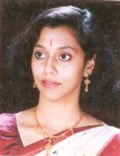 Nirmita Narasimhan Nirmita Narasimhan
Center for Internet and Society
Nirmita Narasimhan is a Programme Manager with the Centre for Internet and Society and works extensively in the area of technology access for disabled persons. The nature of her work ranges from research and policy drafting and review to advocacy through campaigns, workshops etc.
Nirmita’s current work focuses on certain specific areas, namely, working towards policy formulation for internet and electronic accessibility for disabled persons in India, reviewing the Indian Copyright Act and working towards amendments to the Act to include exceptions and limitations for the print challenged, working at a national level towards support of the World Blind Union treaty at the WIPO, organising workshops on web accessibility for web developers in different cities around the country, supporting a wiki on accessibility, working towards making accessible materials available for the visually challenged etc. Nirmita’s work can be viewed at
www.cis-india.org.
Nirmita graduated from Law College in 2002 and since then has worked in different areas ranging from research to practice. She received the MS Lyn scholarship for young lawyers in 2005. Over the years Nirmita has been very interested in working on issues of copyright and access to knowledge for disabled persons and has developed a keen understanding of the issue in India. Nirmita is also a proficient vocal classical singer and has completed her MPhil in Karnatic music from the Delhi University with honours.
|
 Andrea Saks Andrea Saks
DCAD Coordinator
She grew in a family of two deaf parents and assisted them from an early age as their interface with the hearing world: She as responsible making doctors’ appointments, arranging guests’ visits and other appointments by using the telephone which was then inaccessible to her family without her.
Her father, the late Andrew Saks, the late Robert Weitbrecht and James C. Marsters (who recently died July 2009) were the first pioneers deaf themselves, who created deaf telecommunications using surplus teletypewriters and modems that spread throughout the world. These devices were the precursors of textphones and today’s real-time text messaging.
She took that role to the next level when she relocated from the US to the UK in 1972 to promote the use of textphones internationally. She worked with the British Government Post Office (then the regulator of UK telecommunications) and was granted a license for connection of text telephones on the regular telephone network. She was able to successfully lobby the US FCC to allow the first transatlantic textphone conversation over the voice telephone network (1975).
Her first involvement with ITU standardization activity started in 1991 and has ever since increased in scope. Self-funded, she currently attends many ITU-T study group and focus group meetings promoting the inclusion of accessibility functionality in systems being standardized by ITU, such as multimedia conferencing, cable, IPTV and NGN. After the recent creation of ITU-D Q20/1 on accessibility matters by WTDC-06, she also started attending that group and now performs as a bridge between the two sectors on accessibility for persons with disabilities
She has been a key person in the creation of all accessibility events in ITU, and currently is the convener of the recently formed joint coordination activity on accessibility and human factors, as well as the coordinator of the Internet Governance Forum’s Dynamic Coalition on Accessibility and Disability.
|
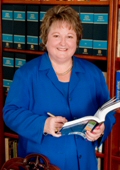 Cynthia Waddell Cynthia Waddell
International Centre for Disability Resources on the Internet
Cynthia Waddell is the Executive Director and Law, Policy and Technology Expert for the International Center for Disability Resources on the Internet (ICDRI), a public policy center based in the United States working for the equalization of opportunities for people with disabilities.
She is an internationally recognized expert serving both business and government on accessible ICT. During the drafting of the Convention on Rights of Persons with Disabilities, she was the built environment and accessibility technology expert for the UN Ad Hoc Committee. She also wrote the ITU-T action plan for implementation of Resolution 70 of the Johannesburg 2008 World Telecommunication Standardization Assembly. In addition, she is Co-Editor/Author of the ITU/G3ict "Toolkit for Policy Makers on e-Accessibility.”
A frequent writer and speaker, her papers have been translated and cited worldwide. She wrote the first accessible web design standard in the United States that led to recognition as a best practice in 1995 by the federal government and contributed to the eventual passage of accessible ICT legislation (Section 508).
Cynthia is the co-author of books, including Web Accessibility: Web Standards and Regulatory Compliance. Named to the 1998 “Top 25 women on the Web” by Webgrrls International, she received the first U.S. Government Technology Magazine award in 2004 for “Leadership in Accessibility Technology and for Pioneering Advocacy and Education.” She holds a Juris Doctor from Santa Clara University School of Law where she was designated a Public Interest Disability Rights Scholar.
|
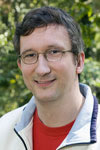 Arnoud Van Wijk Arnoud Van Wijk
Real-Time Text Taskforce (R3TF)
Arnoud van Wijk is the director of the Real-Time Text Taskforce (R3TF, http://www.realtimetext.org). The goal of the R3TF is to ensure that Real-Time Text is as readily available for all users as voice is today.
Arnoud was born deaf in a hearing family and learned to communicate in the hearing word by lip-reading. His high communications skills helped him achieve an advanced degree in biochemistry, studying at the Radboud Universiteit Nijmegen in the Netherlands.
Arnoud worked for four years at the Children's Hospital in Los Angeles, USA, then, in 2000 moved into the ICT field, working with Ericsson in the Netherlands. In 2002, Arnoud joined the Dutch organization Viataal (previously know as the Institute for the Deaf) to develop a mobile text telephone platform. He also worked with AnnieS, a Dutch company that sells mobile text telephone and ICT services for the deaf and hard of hearing. Arnoud has been a technical adviser for the European Federation for Hard of Hearing People and to the European Commission on ICT for e-Inclusion. Since 2001, he has also worked with the Trace Research and Development Center of the University of Wisconsin-Madison which has a partnership with the Technology Access Program at Gallaudet University in Washington DC.
In 2007, Arnoud started his own consulting company GreenGiraffe, which is specialized in ICT inclusion issues and technology. Making the Internet accessible for people with disabilities.
Via GreenGiraffe, Arnoud worked with ISOC to coordinate and advance activities related to the Internet and persons with disabilities. He is an expert in related Internet Protocol based technologies and e-inclusion issues.
Arnoud has been an active participant in the Internet Engineering Task Force (IETF) since December 2000, where he has co-authored or contributed to various Internet Drafts and RFCs related to the Real- Time Text standard and Session Initiation Protocol (SIP).
Arnoud is fluent in Dutch and English.
Arnoud is based in Oss, The Netherlands
|
 David Wood David Wood
European Broadcasting Union
David Wood is Deputy Director, EBU Technical, at the Headquarters of the European Broadcasting Union, in Geneva Switzerland. The EBU is the professional association of Europe's 75 national broadcasters, with an additional 54 Members who are national broadcasters outside the ITU-defined European broadcasting area.
David has been involved in media technology for helping persons with disabilities for many years, such as teletext subtitling, audio descriptions, and signer insertion. He is currently working in the World Broadcasting Union on the interpretation of the UN Convention on Disabilities for the media environment.
David Wood has worked for BBC, IBA, and the European Broadcasting Union in UK, Belgium, and Switzerland. David was educated at Southampton University in UK, the Popov Institute in Odessa, and the Harvard Business School in USA.
David is Chairman of the ITU WP 6C, which is responsible in the ITU for content origination. His special subjects at the EBU include High Definition, Internet, and potential 3D television systems, and is author of papers/articles about them. He has tried to help EBU Members to coordinate research and development for many years.
|
|
|
|



